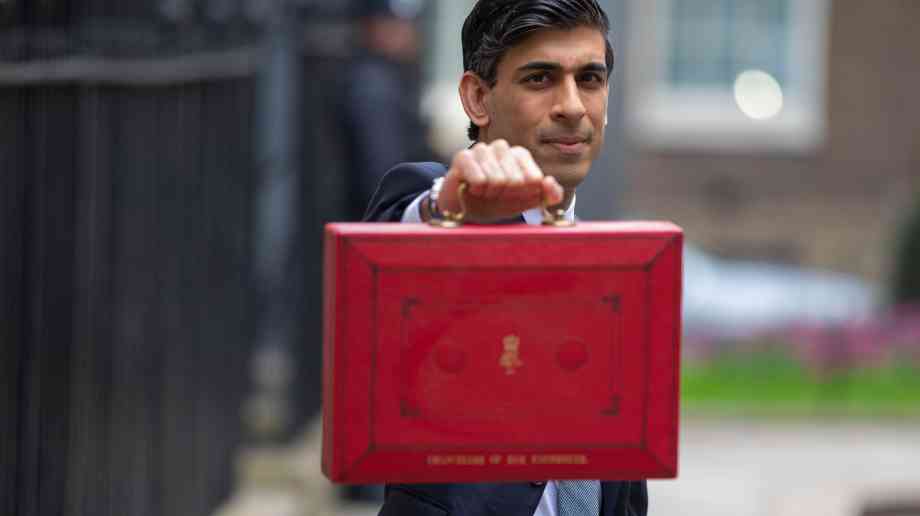Sue Robb of 4Children talks to Julie Laughton and Alison Britton from the Department for Education about the role of childminders in delivering the 30 hours free entitlement.
Sunak delivers Budget amid coronavirus pandemic

Chancellor Rishi Sunak has announced his Budget spending plans, the most important for decades as the UK continues to tackle the coronavirus pandemic.
On direct coronavirus support, Sunak said that the government will extend the furlough scheme until the end of September to protect the jobs and livelihoods of the British people through the remaining phase of this crisis. It has been reported that more than 700,000 people have lost their jobs.
Sunak said in his statement that the Universal Credit £20 per week uplift will be extended for six months, but this will have to be paid as a one-off payment of £500, because of the way the system works. Additionally, the national living wage will go up, to the equivalent of almost £350 a year.
On top of this, support for the self-employed will continue with a fourth grant covering February to April, and a fifth grant from May. The apprentice incentive payments will also be doubled to £3,000, and there will be £126 million to help people offer trainees shifts to apprentices.
In further support for business, the government will provide new Restart Grants in April to help businesses reopen. It is the government’s plan to open non-essential retail businesses first, followed by hospitality and leisure. As mentioned ahead of the budget, the Treasury has announced £300 million additional funding for the Culture Recovery Fund - helping the country’s theatres, museums, heritage sites, festivals and music venues.
To protect hospitality and tourism jobs, the five per cent reduced rate of VAT will be extended for six months to 30 September. Following this, there will be an interim rate of 12.5 per cent for another six months.
The business rates holiday will be extended through to the end of June.
All English local authorities are being provided an additional £425 million of discretionary business grant funding, on top of the £1.6 billion already allocated.
On housing, Sunak said that the new £500,000 nil rate band for Stamp Duty won't end on 31 March as previously planned, but instead it will end on the 30 June.
As suggested in previous reports, the Chancellor said that the government will back a mortgage guarantee. This means that lenders who provide mortgages to home buyers who can only afford a five per cent deposit, will benefit from a government guarantee on those mortgages.
For employees, Sunak said that the government will freeze personal tax thresholds. There will be a increase in the Personal Allowance to £12,570 in April 2021, which will be maintained at that higher level until April 2026.
The Chancellor of the Exchequer used the Budget to announce infrastructure spend plans, including a new UK Infrastructure Bank which will boost investment to accelerate progress to Net Zero, and level up the UK.
Sunak also said that the UK will launch the world’s first sovereign green savings bond for retail investors, allowing savers to help drive the country’s transition to net zero by 2050.
On the next ‘scientific’ revolution, the government will pursue a £1.65bn investment to continue quick and efficient vaccine rollout and further funding for new technology to support future vaccination programmes.
For the devolved administrations, Sunak promised an additional £2.4 billion for Scotland, Wales and Northern Ireland through the Barnett formula, and measures to grow a greener, more sustainable future. This includes £27 million for the Aberdeen Energy Transition Zone, accelerated funding for the Ayreshire, Argyle and Bute and Falkirk Growth Deals, £5 million for the Global Underwater Hub, £4.8 million for the Holyhead Hydrogen Hub, and accelerated funding for the Swansea Bay, Mid-Wales and North Wales City and Growth Deals.
Following a successful bidding process, eight Freeport locations have been selected across England: at Thames, Liverpool City Region, Solent, East Midlands, Freeport East, Plymouth & South Devon, Humber and Teesside.
Company Focus
Located in Bromley, Japanese Knotweed Eradication Ltd has been providing solutions in the treatment and removal of Japanese Knotweed (Fallopia Japonica) for over a decade. During this time we have mastered a repertoire of methods, from herbicidal treatments to landscaping solutions, tailored to address the unique challenges our clients face with this pervasive weed.
Event Diary
UKREiiF has quickly become a must-attend in the industry calendar for Government departments and local authorities.
The multi-award-winning UK Construction Week (UKCW), is the UK’s biggest trade event for the built environment that connects the whole supply chain to be the catalyst for growth and positive change in the industry.
Supplier Profiles
Geo Energy
At GeoEnergy Design, we're on a mission to disrupt the traditional way heating and cooling ha
Latest Features
Professor Harith Alani, director of the Knowledge Management Institute at the Open University explains how AI can be used for good and bad.
Alex Lawrence, head of health & social care, techUK sets out techUK’s Five Point Plan for CareTech.

















